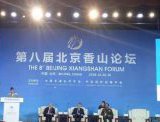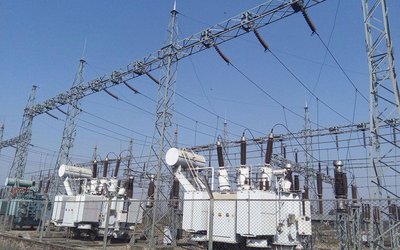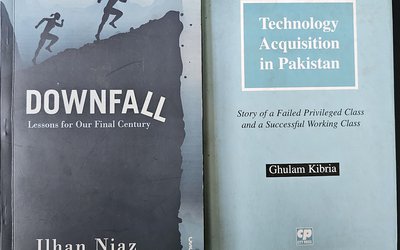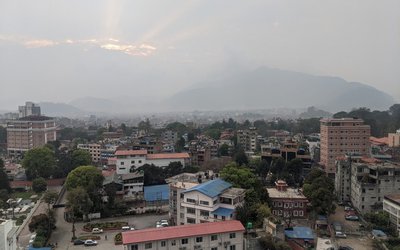
I begin by expressing my gratitude to the Government of the People’s Republic of China, in particular His Excellency Defense Minister General WEI Fenghe, for inviting me to this important Forum and for the warm hospitality extended to my delegation.
I have brought with me greetings and best wishes from the Government and people of Nepal for the success of this Forum.
Based on our long experiences in, and contribution to, the UN peacekeeping operations, I take this as a privilege to share my thoughts in this Forum. The theme ”UN Peacekeeping: Challenges and Cooperation” chosen for this plenary, is both timely and pertinent. It is also an important opportunity for us to learn from the wisdom and experiences of the distinguished participants, senior policy makers and high ranking military officials.
Before I enter into the topic of today, let me underline that Nepal and China enjoy very friendly and cooperative relations based on the Five Principles of Peaceful Co-existence. Sincere observance and policy of non-interference in each other’s internal affairs has made our relationship trouble-free.
As a permanent member of the UN Security Council, China has been playing an important role in maintaining international peace and security, strengthening multilateral system, and combating terrorism. We admire China’s strong support to UN peacekeeping operations.
Our participation in the UN peacekeeping operations is almost as old as our membership of the United Nations. For the last 60 years, Nepal has been a credible and dependable partner of the United Nations in peacekeeping. This is a flagship contribution of Nepal to the world body. This represents our innate desire for peace and security of mankind profoundly inspired by the eternal message of peace, harmony and compassion of Buddha, the apostle of peace and enlightened son of Nepal.
So far, over one hundred and thirty-six thousand Nepali blue helmets have rendered exemplary service to 45 UN peacekeeping missions. I salute 73 Nepali peacekeepers who made ultimate sacrifice for the protection and security of those in risks and almost equal number who sustained serious injuries in the line of duty.
Nepali peacekeepers reached 6,257 after recent contributions of 600 High Readiness Protection Battalion in Central African Republic recently. They are serving in 11 out of 14 peacekeeping missions and 3 Special Political Missions, making Nepal 5th largest troop and police contributing country. We recommit the vital work of Nepali blue helmets continue as long as they are needed. Upon the request from United Nations, we are always ready to contribute 10% of our total military strength to peace keeping missions that comes very close to 10,000 in number. We are sincerely working towards raising the number of female peacekeepers to the target of 15 percent of the total deployed force. We are also committed to meet the UN benchmark of deploying 15% females in the Staff Officers and Observers category.
Nepali peacekeepers are known for their impeccable professionalism, dedication, impartiality and commitment to the service of the mandate. The role played by Nepali peacekeepers to restore peace, stability and normalcy in conflict zones has been acclaimed internationally.
Nepal attaches great importance to UN peacekeeping operation consistent with her foreign policy objectives. Nepal considers peacekeeping operation as an important tool available to the United Nations for the maintenance of truce, saving lives and properties, and preventing human rights violations in conflict-affected zones.
As the nature and dynamic of conflict around the world has grown complex and multi-dimensional, demand for the UN peacekeeping has significantly increased in different parts of the world. From inter-state to intra-state is a visible shift seen in the pattern of new conflict. At the same time, UN peace operations confront with various challenges and constraints.
Limited fund, unavailability of required number of troops, lack of clarity in mandates, lack of required expertise, limited military equipments along with scanty relief and rescue materials are some of the critical issues that have constrained effectiveness of the UN Peacekeeping operations. Addressing all of these issues is critically important to enhance the effectiveness of the peace operations.
From the experience of over 6 decades of our own participation in the UN peace operations, I would like to share a few thoughts that might be useful for our deliberations today.
First, ownership of the UN Security Council, unity of purpose and its undivided political commitment becomes paramount in terms of clear, focused, sequenced, prioritized and achievable mandates. Experiences tell us that when there is unity in the Security Council, peacekeeping missions succeed but in the absence of it, success eludes. Each mandate should define the role and responsibility of all key actors- the Security Council, troop and police contributing countries, the Secretariat, the host country, regional organizations, and others. This must be backed with adequate and predictable resources to accomplish the mandate.
Second, every conflict situation is unique and requires different solution. One-size-fits-all approach cannot work in all situations. Political solution to conflict has no substitute. As we demonstrated in Nepal, a home-grown, nationally owned political process can deliver sustainable peace. Therefore, confidence of all key stakeholders including opposition party or rebels is the must before deployment of peacekeeping force so that its sanctity and impartiality is well understood and there exists a modicum of local cooperation.
Political independence, sovereignty and territorial integrity of the country concerned must be respected. It should integrate the 2030 Agenda for Sustainable Development with a greater focus on poverty alleviation and inclusive economic and social development. This helps address the root causes of the conflict in many situations.
Third, consultation with the prospective troop and police contributing countries before defining the mandates becomes important for generating overall ownership of the mandate and internalizing unity of purpose. Regular and wider consultations with local stakeholders, building trust and promoting partnership with them remain very important elements for the success of any peacekeeping operation. Participation of women, youths, religious and community leaders must be promoted in all peace building efforts.
Fourth, at the operational level, mandates should be clearly communicated to the peacekeepers on the ground. Adequate mission training to the peacekeepers on the mandate is a must. All peacekeeping related reform initiatives should focus on the continuous strengthening of mission capabilities both in soft skills, such as human resources, and hard capability, such as equipment to deal with emerging challenges. The mission leadership should be empowered and made accountable for whole of mission performance. Mission-specific performance indicators should be drawn based on the mandates and ground reality and should be assessed based on the political and tactical conditions on the ground.
Fifth, peacekeepers risk their lives to uphold the UN Principles and implement the UN mandates. Safety, security, dignity and honor of the deployed personnel should be of paramount importance. They should be given the confidence that they are not alone. These vital aspects should receive utmost priority while planning and executing peacekeeping missions. Perpetrators of crimes against UN peacekeepers should be brought to book.
And sixth, deployment of UN Peacekeeping force is an interim means to maintain peace and order in conflict zone. UN Peacekeeping force should not be taken as a permanent force, but an interim measure to facilitate conflicting parties to find out political solution to the conflict for a sustained peace and stability. Peacekeepers therefore should stay away from involving in internal political dynamics or diluting internal political process. Peacekeeping operation should be mission and result oriented and presence of peacekeepers should be limited to the defined term and mandate. Indefinite presence of peacekeepers with undefined mandate risks discrediting of UN peace operations. Therefore, wisdom should prevail in keeping UN peace operations free of controversies and it should always be demand driven.
The UN peace operations do not have the space to fail. They must succeed to rekindle hopes of millions affected by conflicts. They must succeed to maintain international peace and security. Making UN peacekeeping operations effective is only way out for this. A major challenge for many troop and police contributing countries, including Nepal, has been adequate provisioning of modern, high-tech equipment and military hardware in the field. This challenge can be addressed through building a complementarily between the troop and police contributing counties and the countries with adequate and advanced military hardware capacity. This will significantly enhance effectiveness of UN peacekeeping operations and present a good example of cooperation in UN peace operations.
In conclusion, Mr. Chairman, we reaffirm our profound faith in the UN as the only legitimate and capable institution to address global problems we face including in the spheres of peace and security. On much broader scale, for us, multilateral-ism and rule-based order is the only way of guaranteeing international peace and security, development and prosperity.
Finally, Chairman, let me conclude by paying tribute to all the UN peacekeepers that have sacrificed their precious lives for the noble cause of maintaining international peace, security and humanity around the world.
Pokharel is the Deputy Prime Minister and Minister of Defense. Excerpts of keynote speech delivered at the 8th Beijing Xiangshan Forum, China.

















